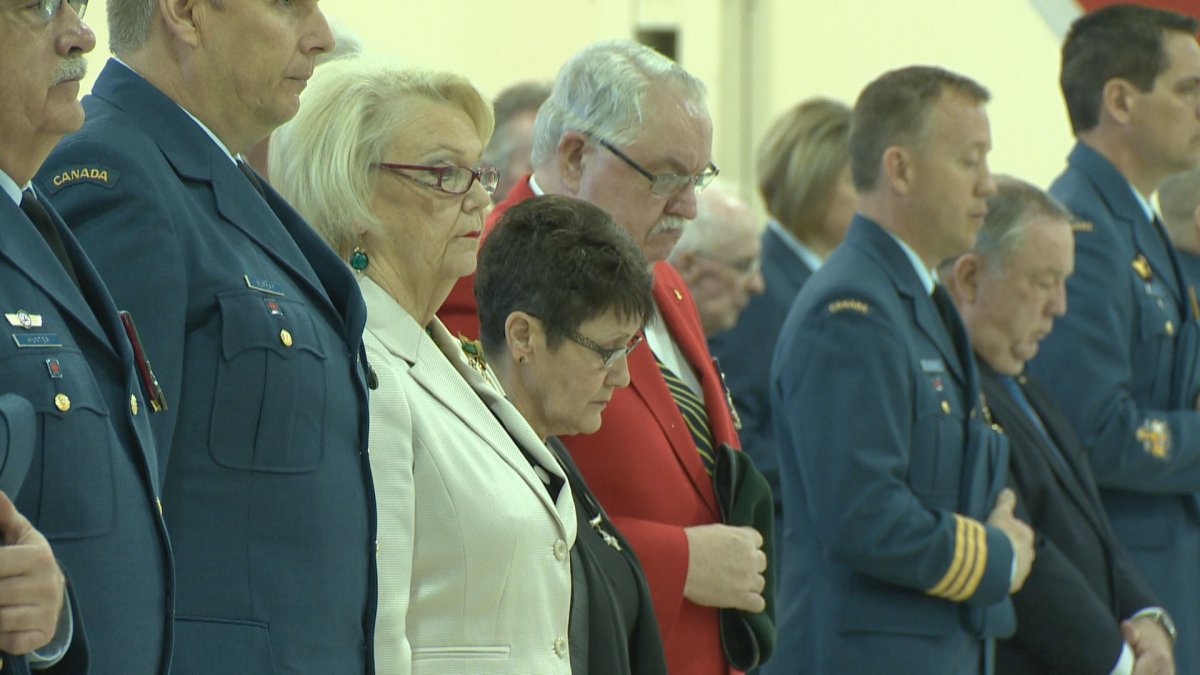MOOSE JAW – Hundreds gathered at 15 Wing Moose Jaw Friday morning to observe National Day of Honour.

They were commemorating every Saskatchewan soldier who served in the Afghanistan mission, and read aloud all the names of those who paid the ultimate sacrifice.
“It was very important for me that I read every name on that list because we tend to forget that it’s not just one person that fell. It wasn’t just one person that was affected,” said Capt. Susan Magill.
Nearly 200 members of the Canadian Armed Forces were deployed from Saskatchewan to Afghanistan over the 12-year mission.
Mcpl. Jeffrey Scott Walsh was one of them; his name was read aloud by Magill.
“Jeff was a great son. He was a great father,” said Jeffrey’s father Ben Walsh.
Ben, who lives in Regina, says that while the pain gets easier to handle every year, he never forgets.
“It’s hard at times. Today, I shed some tears. But, I learned it’s alright to do that,” said the retired RCMP sergeant.
Today, was also the opening show of the Snowbirds Demonstration Team.
As one of the primary pilot training programs in the country, many pilots from the base participated in the mission, including airlifting supplies, and contributing helicopter and unmanned arial vehicle assistance.
“It’s more than a job to us. It’s a way of life,” said Lt. Col. Brian Murray, 15 Wing Deputy Wing Commander.
From the skies, to the grounds, there were potential dangers at every turn during the mission.
“We were always on the watch out — roofs, people’s hands,” said Chief Warrant Officer Michel Blaine, who is the Wing Chief for 15 Wing. “On a daily basis you’re surrounded by vehicles, and you don’t know which one has an IED.”
Almost all Canadian Armed Forces members are back home, but there are lasting effects.
“It’s important to recognize the work that was done by these people. Not only the people that lost their lives, but the people that came back some of them have mental illness, PTSD,” said Blaine.




Comments